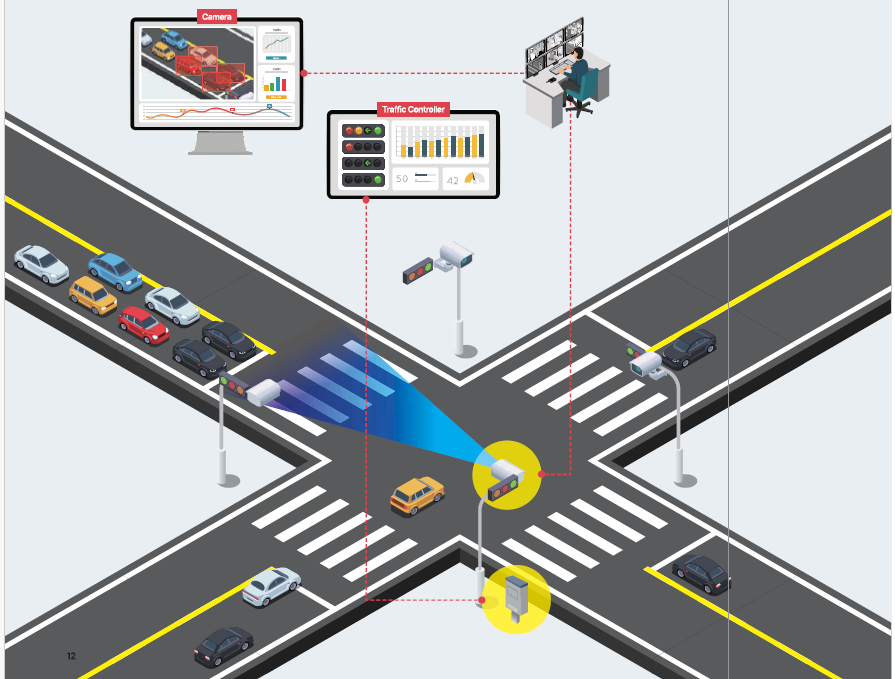Adaptive Pedestrian Crossing System (APCS)
Enhancing Pedestrian Safety, Improving Traffic Flow
Adaptive Pedestrian Crossing System (APCS) is an advanced, AI-powered solution designed to make pedestrian crossings safer, smarter, and more efficient. Unlike traditional signal-based crossings, APCS dynamically adjusts signal timings in real-time by detecting pedestrian movement, density, and demand at intersections.
Equipped with intelligent cameras, sensors, and integration with traffic controllers, APCS ensures that pedestrians get adequate time to cross safely while maintaining smooth traffic flow for vehicles. The system also prioritizes vulnerable road users such as senior citizens, children, and differently-abled individuals by automatically extending crossing times when needed.
By combining real-time monitoring, adaptive control, and centralized management, APCS plays a critical role in reducing pedestrian accidents, improving accessibility, and supporting sustainable urban mobility.

Key Features
AI-Powered Pedestrian Detection
Uses cameras and sensors to detect pedestrians in real time at crossings
Dynamic Signal Timing
Adjusts pedestrian walk time based on real-time demand and crowd size
Smart Integration with Traffic Signals
Coordinates pedestrian and vehicle signals to ensure safe, smooth flow
Push-Button and Touchless Activation
Allows both manual push-button or touchless sensor activation for added convenience
Centralized Monitoring & Control
Connects with traffic control centers for real-time monitoring, analytics, and incident management
Pedestrian & Cyclist Safety
Integrates smart crossings and sensors to protect vulnerable road users
Data Collection & Analytics
Records pedestrian flow and crossing patterns for future planning and optimization
Integration Friendly
Easily connects with third-party systems like ERP, HRMS, and incident management tools for unified workflows.
Energy-Efficient & Scalable Design
Uses smart controllers and low-power sensors, scalable for single or multiple intersections
Benefits of APCS
Enhanced Pedestrian Safety
Reduces accidents and ensures safe crossing by detecting pedestrians in real time
Efficient Traffic Management
Integrates with smart traffic systems for seamless operation across multiple intersections
Scalable and Future-Ready
Can be expanded into a fully integrated smart city traffic management ecosystem
Reduced Traffic Congestion
Optimizes signal timings to balance pedestrian flow with vehicular traffic, minimizing delays
Empowering Safe Mobility
Visible adaptive systems increase pedestrian confidence and public trust in traffic infrastructure
User Convenience
Offers flexible crossing options with both automatic detection and manual activation
Lower Environmental Impact
Reduces unnecessary idling of vehicles at signals, cutting down emissions and fuel wastage
Data-driven Decision Making
Provides insights into pedestrian behavior, helping city planners design better infrastructure
Reduced Pedestrian Wait Time
Crossings are activated only when needed, reducing unnecessary waiting at signals





